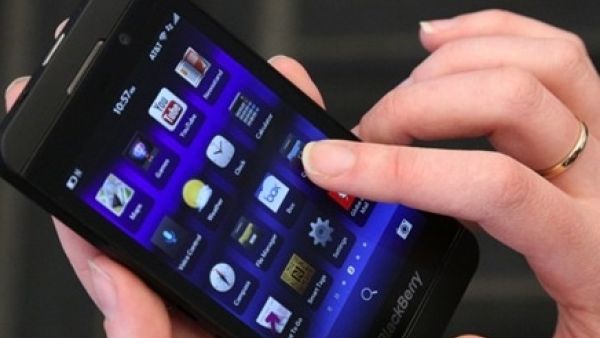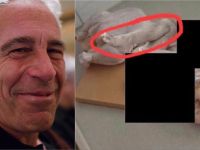An offer to take BlackBerry private does not end the uncertainty surrounding the ailing smartphone maker.
BlackBerry said on Monday that it had signed a letter of intent from a group led by Fairfax Financial Holdings, a Canadian insurance and investment company, to pay shareholders $9 (Dh33) a share in cash, pending a variety of conditions, taking the company private.
The $4.7 billion offer from Fairfax, which already owns about 10 per cent of BlackBerry, is a powerful symbol of phone maker’s decline. In June 2008 — a time when BlackBerrys defined smartphones — the company had a stock market value of $83 billion.
Any deal is far from done. Fairfax did not identify the other investors in its consortium, which is seeking financing. And while the offer could flush out potential rival suitors, it is unclear who might be tempted to come forward, given the company’s uncertain prospects. Investors gave a muted endorsement on Monday, with BlackBerry shares rising 1 per cent, to $8.82.
The offer came after the company announced Friday that it expected to report a quarterly loss of nearly $1 billion, stemming largely from the failure of the BlackBerry 10 line of phones that were supposed to revive the company. BlackBerry also outlined plans to lay off about 40 per cent of its already reduced workforce, or around 4,500 people.
Sensing the opportunity to halt the fall in company’s stock prompted by that announcement, and the potential to kick off an auction, BlackBerry’s board seized on the offer, quickly signing a letter of intent. The particulars of the deal’s announcement came together in a matter of hours Monday morning.
V. Prem Watsa, Fairfax’s chairman and chief executive, told shareholders in March that the company paid an average price of $17 for its BlackBerry shares, giving him an obvious interest in at least stalling the slide in BlackBerry’s shares.
Yet not only are there questions about the offer, several analysts say it is not clear how the Fairfax group could reverse or even stabilise BlackBerry’s rapid decline.
“Last week was essentially an announcement that they are leaving the handset business,” said Jan Dawson, a telecommunications analyst with Ovum. “But pick any market they’re trying to go into and there are strong, entrenched competitors.”
Given the high risk involved in investing in BlackBerry, one of the most pressing questions surrounding the deal is the identity of who is prepared to invest in the company alongside Fairfax. One possible clue came from the fact that Byron D. Trott, the banker used by Warren E. Buffett, was advising Fairfax. Trott and his firm, BDT & Co., often work with wealthy private investors.
Mike Lazaridis, the co-founder of BlackBerry who stepped down as co-chief executive in 2012, has been interested in making an offer with private equity investors, people familiar with the situation said. That led to speculation Monday that he might join the Fairfax group.
Through a spokesman, Lazaridis declined to comment. Neither Fairfax nor Watsa responded to requests for comment.
Just as unclear is how a buyout would be financed. Fairfax did not say how much cash it was prepared to put toward the deal, or how much debt it expected BlackBerry to take on in a buyout. BlackBerry is largely debt-free and had about $2.6 billion in cash at the end of the last quarter, leaving just a couple billion dollars needed to conceivably strike an acquisition.
But any bank that provides financing could be taking a risk. The company consumed about $500 million of its cash during the last quarter while the upcoming layoffs and sluggish sales raise the possibility that even more than that may vanish in the current quarter.
By signing the letter of intent, BlackBerry effectively opened the door to other bidders. It now has six weeks to shop itself around as Fairfax conducts due diligence, or scrutinizes its books. If BlackBerry accepts another deal or walks away from Fairfax’s offer before a definitive agreement is signed, it will owe Fairfax about $157 million. If it walks away after a formal deal is signed, it will owe Fairfax about $262 million. Neither does the agreement appear to bind Fairfax to its $9 a share bid; after due diligence, Fairfax may decide to lower its offer.
The offer establishes a timeline and a price floor for other potential bidders. But with the company in free fall, there is little certainty of another bid emerging in the coming weeks.
Brian Colello, an analyst with Morningstar, said that other buyers, if there are any, are unlikely to be interested in BlackBerry’s phone business.
“There is no value for the BlackBerry 10 ecosystem,” he said. “The value of this company is cash and patents.”
Analysts’ estimates of the value of the patents at about $2 billion. But not only has the market for patents cooled, BlackBerry does not directly control many of its most important patents, which it owns in common with other technology companies like Apple and Microsoft.
Still, BlackBerry continues to have a strong booster in Watsa. He resigned from BlackBerry’s board in August to avoid any conflicts of interest after the company announced that it was engaged in a strategic review which might include a sale.
Watsa’s involvement in a buyout would ensure Canadian control of the company, which is headquartered in Waterloo, Ontario, removing a major hurdle for a deal. While a number of Chinese companies, particularly ones with little market presence in the West, might bid for BlackBerry, the Canadian government would likely block any such takeover on national security grounds.
Historically, Watsa has favoured buying distressed companies and then guiding turnarounds. While the strategy has generally been successful, the company’s recent history includes some prominent failures. CanWest Global Communications, once a large Canadian television broadcaster and newspaper publisher, and AbitibiBowater, a paper maker, both collapsed and ultimately were delisted. Fairfax also began buying heavily in Torstar, the parent company of The Toronto Star and the romance book publisher Harlequin, in 2007. Since then, Torstar’s share price has steadily declined.
Fairfax uses hedging and large cash holdings to protect its investors from failed investments.
Even without quitting the handset business, BlackBerry’s management has said it plans to expand the company’s software business. BlackBerry has ambitious plans for relatively software that allows corporations to control and manage employees’ mobile devices, including iPhones and Android-based phones. It has also made efforts to turn the BlackBerry Messenger instant-messaging service into a social media service.
But in those areas, as it in the phone business, BlackBerry has come up against large, well-financed competitors from Microsoft to Facebook.
If BlackBerry does go private, it would be the second large technology company with outdated products to go that route this year. Dell, the personal computer maker, was bought out by its founder, Michael S. Dell, and Silver Lake Partners earlier this month for $24.9 billion.
Yet Dell is a veritable tech powerhouse compared to BlackBerry, whose North American market share has slid to 3.4 per cent from 51 per cent in just four years. For Dell, revenues are down and demand for its products has weakened because of the growth tablets, but Dell remains a major provider of commodity PCs and servers, and owns business and government software assets that may provide it with a more certain path forward.








